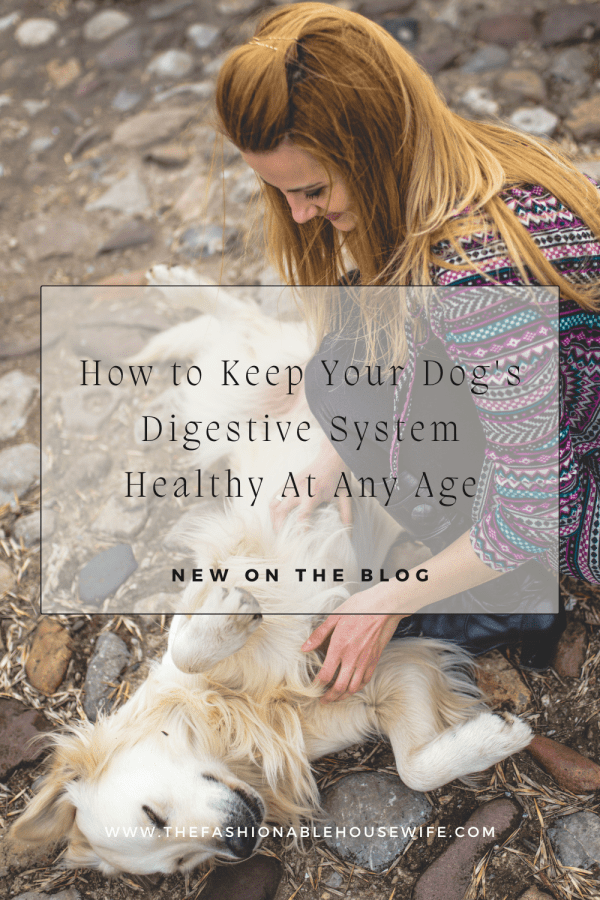
Every stage of your furry companion’s life brings unique health challenges. However, you can prevent many of these challenges with balanced nutrition, regular checkups, and physical activity.
The diet should come first since the standard of food your pooch consumes influences their lifespan and mental well-being. Quality ingredients provide proper nourishment, whereas substandard ones might lead to premature aging or chronic diseases like obesity and diabetes.
So, if you want to know how to keep your pup’s digestive system happy regardless of their age, keep reading. We put together a few tips to help you better understand your dog’s dietary needs.
Keep Your Puppy Happy and Growing Strong
Puppyhood is a crucial period filled with rapid growth and development. Your little pup requires nutrition-dense food that is easily digestible.
Look for high-quality puppy food that is specially formulated for their unique needs and meets the standards of The Association of American Feed Control Officials (AAFCO). These foods often come in smaller kibble sizes for easy chewing and digestion.
Keep in mind that puppy food is usually packed with higher levels of protein necessary for building strong muscles, so it doesn’t work for adult and senior dogs. Moreover, your puppy’s diet should include calcium for bone growth, alongside other essentials like vitamin A for eye health and omega fatty acids for a shiny coat.
Likewise, carbohydrates play a crucial role in supplying energy. However, opt for complex carbs like sweet potatoes or brown rice, which release energy slowly throughout the day. Also, don’t forget about fiber – it promotes a healthy digestive system by helping regulate stool consistency.
Consider Introducing Probiotics
While probiotics are recommended at all life stages, it’s best to incorporate them into your pup’s diet early on. These friendly bacteria can promote gut health from the start by improving digestion and enhancing immunity against intestinal pathogens.
It’s important to look for high-quality probiotics for pups that follow strict production and control regulations. Also, make sure to consult your vet before starting any supplements.
Make Sure Your Adult Dog is Happy & Healthy
As your puppy grows into a gorgeous, mischievous adult, maintaining a balanced diet becomes even more essential. Avoid feeding table scraps, as this can lead to poor digestion and eventual obesity.
As they reach physical maturity, gradually switch to high-quality adult dog food. Adult dogs require less protein and calories since they are no longer in the brisk growth phase. Fats, especially Omega-3 and Omega-6 fatty acids, are also important. They contribute to a glossy coat and healthy skin and support brain function while promoting anti-inflammatory effects.
Vegetables and fruits should not be left out either! They’re chock full of essential vitamins and antioxidants that maintain overall health, protect against diseases, and support a robust immune system.
Also, introducing fibers in moderation can work wonders during this phase of life. Fibers facilitate slower food intake, which ensures better nutrient absorption while reducing risks of bowel disorders such as constipation.
Lastly, don’t ignore your pooch’s need for physical activity. As they leave puppyhood behind, some dogs may turn into couch potatoes. However, this doesn’t mean they don’t need their daily walk and other activities to stay healthy. Walk around the neighborhood or visit the local dog park to keep Max or Luna active.
Pay Attention to Your Aging Dog Special Needs
If your four-legged friend is getting along in years, you have to pay extra attention to their diet and physical activity requirements. Their metabolism starts slowing down, so they’ll need easy-to-digest foods that are low in fats but still rich in nutrients.
You should switch to specially formulated senior dog food. These foods are usually loaded with high-quality proteins but have less fat and fewer calories to accommodate their slower metabolism. A diet that includes omega-3 fatty acids is excellent as well since these promote joint health.
However, adjustments in the diet of a senior dog should be made gradually to avoid upsetting their stomach. Also, at this stage of life, hydration becomes even more crucial. Always ensure there is fresh water available to aid digestion and overall bodily functions.
Other Factors to Consider
As we mentioned in the beginning, food is not the only factor to consider. You also need to keep up with regular check-ups at the vet (especially during seniorhood). Some digestive issues can become more common as dogs age. In this case, early detection is vital for effective intervention and treatment.
Exercise cannot be overlooked either. It promotes a healthy metabolism, which directly affects digestion positively. Lastly, oral hygiene plays an underappreciated role in the digestive health of our pets. Regular dental cleaning stops bacteria from traveling from your dog’s mouth into its digestive system.
In summary, your dog needs high-quality food formulated for their special needs, physical activity and mental stimulation, and regular checkups. If you can keep up with all of these, your four-legged companion should have a happy and healthy life.



